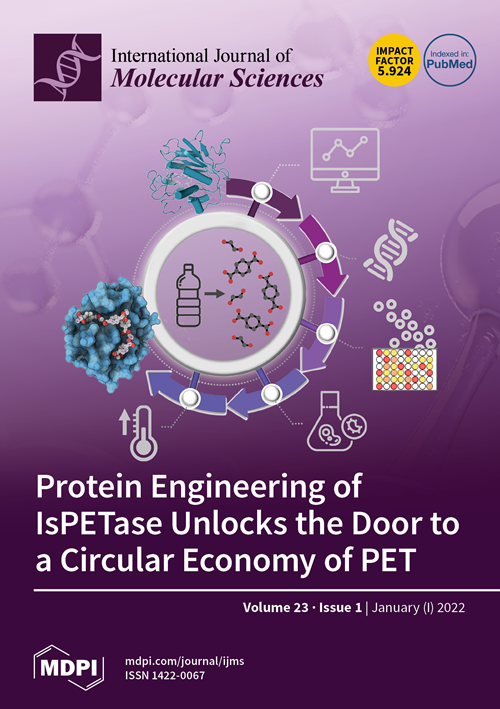Personalized Medicine in Severe Asthma: From Biomarkers to Biologics
IF 4.9
2区 生物学
Q1 BIOCHEMISTRY & MOLECULAR BIOLOGY
引用次数: 0
Abstract
Severe asthma is a complex and heterogeneous clinical condition presented as chronic inflammation of the airways. Conventional treatments are mainly focused on symptom control; however, there has been a shift towards personalized medicine. Identification of different phenotypes driven by complex pathobiological mechanisms (endotypes), especially those driven by type-2 (T2) inflammation, has led to improved treatment outcomes. Combining biomarkers with T2-targeting monoclonal antibodies is crucial for developing personalized treatment strategies. Several biological agents, including anti-immunoglobulin E, anti-interleukin-5, and anti-thymic stromal lymphopoietin/interleukin-4, have been approved for the treatment of severe asthma. These biological therapies have demonstrated efficacy in reducing asthma exacerbations, lowering eosinophil count, improving lung function, diminishing oral corticosteroid use, and improving the quality of life in selected patients. Severe asthma management is undergoing a profound transformation with the introduction of ongoing and future biological therapies. The availability of novel treatment options has facilitated the adoption of phenotype/endotype-specific approaches and disappearance of generic interventions. The transition towards precision medicine plays a crucial role in meticulously addressing the individual traits of asthma pathobiology. An era of tailored strategies has emerged, allowing for the successful targeting of immune-inflammatory responses that underlie uncontrolled T2-high asthma. These personalized approaches hold great promise for improving the overall efficacy and outcomes in the management of severe asthma. This article comprehensively reviews currently available biological agents and biomarkers for treating severe asthma. With the expanding repertoire of therapeutic options, it is becoming increasingly crucial to comprehend the influencing factors, understand the pathogenesis, and track treatment progress in severe asthma.重症哮喘的个性化医疗:从生物标记物到生物制剂
严重哮喘是一种复杂的异质性临床症状,表现为气道慢性炎症。传统的治疗方法主要集中在症状控制上;然而,目前已开始向个性化医疗转变。由复杂病理生物学机制(内型)驱动的不同表型的识别,尤其是由 2 型(T2)炎症驱动的表型的识别,提高了治疗效果。将生物标记物与 T2 靶向单克隆抗体相结合,对于制定个性化治疗策略至关重要。抗免疫球蛋白 E、抗白细胞介素-5 和抗胸腺基质淋巴细胞生成素/白细胞介素-4 等几种生物制剂已被批准用于治疗严重哮喘。这些生物疗法在减少哮喘加重、降低嗜酸性粒细胞计数、改善肺功能、减少口服皮质类固醇用量以及改善特定患者的生活质量方面已显示出疗效。随着当前和未来生物疗法的引入,严重哮喘的治疗正在经历一场深刻的变革。新型治疗方案的出现促进了表型/终型特异性方法的采用,并使普通干预措施逐渐消失。向精准医疗的转变在细致处理哮喘病理生物学的个体特征方面发挥着至关重要的作用。一个量身定制策略的时代已经到来,它可以成功地针对导致 T2 高哮喘失控的免疫炎症反应。这些个性化方法有望改善重症哮喘治疗的整体疗效和结果。本文全面回顾了目前可用来治疗重症哮喘的生物制剂和生物标记物。随着治疗方案的不断扩大,了解重症哮喘的影响因素、发病机制并跟踪治疗进展变得越来越重要。
本文章由计算机程序翻译,如有差异,请以英文原文为准。
求助全文
约1分钟内获得全文
求助全文
来源期刊

International Journal of Molecular Sciences
Chemistry-Organic Chemistry
CiteScore
8.10
自引率
10.70%
发文量
13472
审稿时长
17.49 days
期刊介绍:
The International Journal of Molecular Sciences (ISSN 1422-0067) provides an advanced forum for chemistry, molecular physics (chemical physics and physical chemistry) and molecular biology. It publishes research articles, reviews, communications and short notes. Our aim is to encourage scientists to publish their theoretical and experimental results in as much detail as possible. Therefore, there is no restriction on the length of the papers or the number of electronics supplementary files. For articles with computational results, the full experimental details must be provided so that the results can be reproduced. Electronic files regarding the full details of the calculation and experimental procedure, if unable to be published in a normal way, can be deposited as supplementary material (including animated pictures, videos, interactive Excel sheets, software executables and others).
 求助内容:
求助内容: 应助结果提醒方式:
应助结果提醒方式:


